
Would you like to improve your relationship with your horse Understanding a bit about how horses respond to human interaction and different training methods can improve our relationships with them and strengthen the likelihood that they’ll perform behaviors that we’ve requested of them. It’s possible, too, that if we smile while we’re working with them, they’ll respond even more favorably.
If that sounds far-fetched, we’ll back it up with a study that indicates that horses can indeed recognize human facial expressions and that they prefer a smile to a scowl. First, though, we’ll look at negative reinforcement and positive reinforcement training methods, and how you can use both in formulating the best course for your horse’s training.
Negative Reinforcement
Negative reinforcement is a training method that can help teach a horse (or other type of animal or even a human) specific behaviors. It’s traditional and widespread in the horse world. With the use of the word “negative,” this method of training can conjure up misleading imagery of punishment or cruelty. In this case, “negative” simply refers to the removal, or negating, of something unpleasant or uncomfortable when a horse responds to a stimulus or cue the way we would like him to. With repetition, he learns that if he responds as we would like, the unpleasant condition will stop.
Esta historia es de la edición Bonus Issue 2023 de Horse and Rider.
Comience su prueba gratuita de Magzter GOLD de 7 días para acceder a miles de historias premium seleccionadas y a más de 9,000 revistas y periódicos.
Ya eres suscriptor ? Conectar
Esta historia es de la edición Bonus Issue 2023 de Horse and Rider.
Comience su prueba gratuita de Magzter GOLD de 7 días para acceder a miles de historias premium seleccionadas y a más de 9,000 revistas y periódicos.
Ya eres suscriptor? Conectar
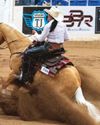
The Horse
LIFE TAKES US DOWN different paths, but I seem to be on just one, which is with the horse.
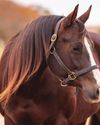
Decoding the Diseases Examined by AQHA's Six-Panel Test
The six-panel test is a diagnostic tool used to assess the genetic predispositions of horses. It's meant to discover if a horse has or is a carrier for certain hereditary diseases and traits.
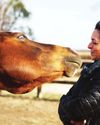
Love is Good
All horses are assured a hopeful, compassionate plan of care at This Old Horse, a program that helps not only horses but people, too.
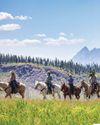
HORSE PACKING 101
Take your trail riding to the next level with nature-filled adventures in the back or front country.
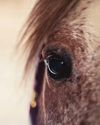
NEW HORSE; NEW PROBLEMS
Anew horse can bring excitement and energy to the barn, and even reinvigorate your passion. However, there are also a myriad of new problems that can come with a new horse, so learn how to introduce him properly to avoid these common issues.
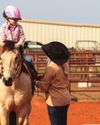
First-Timer Tips
Heading to a young rider's first event with their horse can be intimidating. Use these myths and truths to make it smoother sailing for yourself and your young rider.
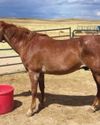
Re-Rescued: Aslan's Story
One special gelding learns about three different types of love during his rescue journey.
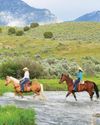
The Country's Hottest Horse Motels
Take your next trail-riding adventure to the next level by staying at one of these six horse motels across the United States.
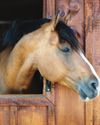
Outbreak! What We've Learned
Learn how disease outbreaks in recent years have changed the horse industry, and why it's so important to play your part when it comes to disease prevention efforts.
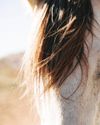
TRAINING THE SENSITIVE HORSE
Shift your mindset and grow your sensitive horse's pressure-handling skills to improve his confidence and your riding enjoyment.